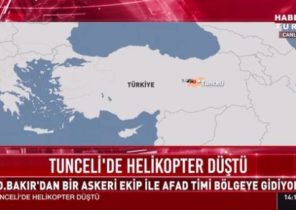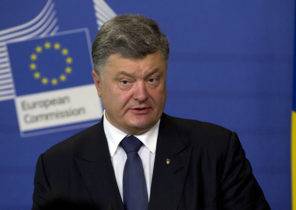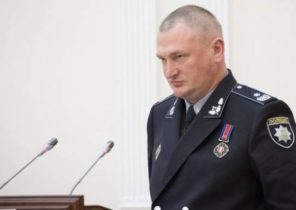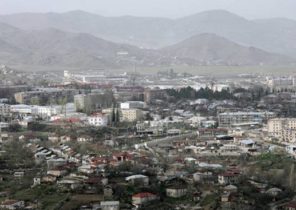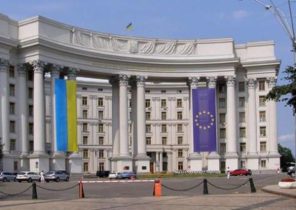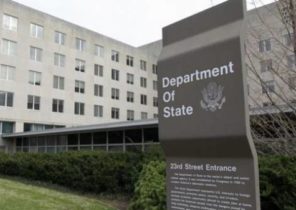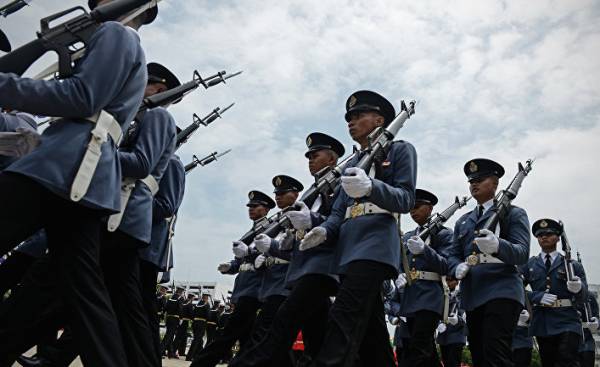
Bangkok
Ask any Dane what he or she is associated with Thailand, and most would call beaches, palms, exotic food, and, perhaps, cheap alcohol. The country is soft as silk, where you are always greeted with the familiar Thai smile.
Tourists out of danger
Although Thailand experienced a coup, and the situation in the field of human rights observance became considerably worse, still: Thailand remains a very safe country for tourists.
Neither the military nor any other party does not want the conflict in some way affected millions of tourists annually coming into the country.
So if you, as a tourist, stick to the law, you will not have any problems.
But there are several versions of Thailand. One of them is the tourist version. The other reality in which there are the residents of Thailand, and which touch only a very few tourists.
But the reality this suggests that Thailand is no longer a democracy. The country is now controlled by the government, under military control, which, after 2014, according to the UN, questioned, put in prison or detained approximately 1.5 thousand people.
In addition the military junta abolished the freedom of speech and Assembly, and introduced a system that unleashes her hands in persecuting those who criticize her.
An example of the latter lawyer Sirikan of Charoensiri (Sirikan Charoensiri). Her office is located in the white building in the center of the capital, Bangkok. In the basement of a popular restaurant, where visitors can cook their meat on the grill for a small table. Everything radiates peace and comfort, but from its Bureau on the floor above Sirikan of Charoensiri vigilantly for those who show up in the square in front of the house.
“Sometimes I go to the police, dressed in civilian clothes,” she says.
Hidden mobile phones
At first glance, Sirikan of Charoensiri, which is 31 years, there’s nothing particularly remarkable. On the contrary. She is smiling, talking in a low, subdued voice. But the Thai authorities think it is the criminal element that took part in the actions directed on overthrow of the existing order, and so now she risks to get up to 15 years in prison.
Crime Sirikan of Charoensiri is that in June 2015 it appeared in military court in Bangkok, where they were supposed to protect the 14 young people who participated in demonstrations demanding more democracy in Thailand.
They didn’t want the police took their mobile phones, so I asked her to lock the phone in her car. When the police found out, she demanded that Sirikan of Charoensiri opened his car.
She refused, citing the fact that they have no court order.
The conflict has led to the fact that the Thai authorities accused her of refusing to obey the orders of the police and in participating in subversive activities, and later — in the nomination of false accusations against the police. While the claims against it, the courts have not considered but, if the lawyer is convicted, she could receive up to 15 years in prison.
“Because of this situation, I often experience stress,” says Sirikan of Charoensiri.
It is not doubt that the Thai authorities want to demonstrate to all advocates in the country: they may be in big trouble if they dare — as did Sirikan is to protect the people that the junta considers its enemies.
“Thus, the junta is trying to dismantle the entire justice system of Thailand and to prevent the implementation of the principle that the right to counsel is at all,” says Sirikan of Charoensiri.
Not the outlet
Thailand for many years was known as the Asian outlet — both literally and figuratively. It was here that American soldiers during the Vietnam war were on vacations, flushing the horrors of war in alcohol and prostitutes, which subsequently contributed to the rapid development of the tourism industry in the country.
But at the same time, Thailand — despite a number of military coups and other upheavals — has long been considered a Bastion of stability, with a relatively free and active civil society, while in many other places in the region, have experienced setbacks — for example, in neighbouring Myanmar, where a brutal military dictatorship suppressed in society everything.
But today, many political observers say that maybe the Thailand and Myanmar may soon switch places. While in Myanmar gently punched shoots of democracy in Thailand, the process is reversed.
“We are on track to see Thailand, where the military everywhere invade civil society and copy the model Myanmar,” says Paul chambers (Paul Chambers), scientific Director of the Institute of Southeast Asia at the University of Naresuan (Naresuan University) in Thailand.
Today Thailand manages the former commander of the land forces prayuth Chan-OCHA, who came to power in a coup in 2014. The Human rights organization Human Rights Watch compares it with the dictator, because he introduced in Thai law a provision that gives him unlimited power to make decisions that he deems appropriate — regardless of whether they abolish existing laws, or violate basic human rights.
To prevent protests against the junta, he abolished the right to freedom of Assembly, so that today in political gatherings can have up to five people.
In addition, he gave the authorities the right to censor the media, which, in the opinion of the junta, threaten national security and order. This led to the fact that the TV channel the Voice TV in March of this year was seven days devoid of the permission to broadcast, because it gave the broadcast stories that do not reflect the version of events offered by the junta.
Instead prayuth Chan-OCHA launched his own TV show, which show in Prime time on Fridays, where he talks about everything and nothing.
For example, he recently spent the best part of his program to recommend a book on Chinese philosophy, which, in his opinion, very important to the culture of Thailand.
“The book teaches us to adapt to all situations and talks about the importance to be moderate” — broadcast prayuth Chan-OCHA, who is known for the fact that explodes like a firecracker if something goes wrong.
His temper can acquire other forms. For example, when at a press conference in 2015, he was asked what he would do with journalists who would not follow the line of the junta. Not with a straight face, he replied: “We will probably have to execute them”.
He later apologized for the remark, explaining it by the fact that he was in a bad mood. Your temperament he also explained that he considers himself a person who brings himself a sacrifice to the state and trying to keep the country from disintegration.
This worldview excludes all other opinions except his own, and it led to the adoption of such laws and such acts, which forced many members of the world community widely open eyes in amazement.
Control over moods
According to the UN, after the coup, about 1.5 thousand Thais have been arrested or detained, because the junta, in particular, gave the military the right to detain people for up to seven days without filing formal charges. They also do not appear before the court and denied the right to counsel.
The junta annulled the freedom of speech that in the past year have resulted in at least 120 politicians, activists and journalists were arrested for criticizing the draft of the new Constitution, whose goal was to give the military more power. Now they are risking up to ten years in prison.
Simultaneously, the junta is trying to control the mood of the political, artistic and intellectual elite of Thailand.
Human Rights Watch suggests that after the coup in 2014 was caused on interrogations and talks to the military, to “correct” their position. After a friendly conversation they were asked to sign that in the future they will refrain from political comments, participation in political activities or protests against the military.
“With each new year, the junta in power in Thailand is sinking deeper into dictatorship” — said recently, brad Adams (Brad Adams), head of the Asia division at Human Rights Watch, report on the situation in the country. Simultaneously, Amnesty International has made similar criticisms.
Life abounds
We can assume that with such rulers Bangkok will soon come to resemble East Berlin before the Wall came down.
But no. Military on the streets to be seen, life in Bangkok is the same fussy and exuberant, as usual — chaotic transport, crowds of people, bars, restaurants and hotels.
Almost the only visible effects of the decisions taken by the junta, is that all taxi drivers are obliged to have in cars safety belts, as well as what bars, go-go is known for its prostitutes of Patpong street in the capital, already can not put people at the entrance to catch customers. But that doesn’t mean the bars are closed. Only now they have to wait until the clients themselves will find them.
But the tranquil mood is explained by the fact that Bangkok is the home base of the military junta. Junta leader prayuth Chan-OCHA is an incredibly popular figure as the middle class and the upper strata of the city, because many in the capital prefer not democracy, but order.
“He’s trying to restore order, and it is necessary because politicians can no longer govern. And in this situation we have to accept the fact that freedom we have is smaller,” says the man who asks to be called in the newspaper is his name: Chan.
He has a clothing store, and things are going so well that he could afford to buy an apartment in one of the most prestigious areas of Bangkok, where in recent years dozens of luxury homes.
Current well-being is based on the economic growth which Thailand has experienced in the 1980-ies. Into the city poured money and turned Bangkok into a modern metropolis with skyscrapers, shopping malls and chetyrehpolozyj highway.
The most photographed place in the world now, what often share in Instagram is a huge luxury Department store Siam Paragon in Central Bangkok. There you can find not only the most expensive brands of watches and clothing, but also buy yourself a Bentley, Porsche, Lamborghini or Rolls-Royce in the automotive Department of a Department store, which is easy to find — just go up the escalator to another room.
But progress also had its price.
The Thai Berlusconi
When in the 1980’s, the economy began to grow rapidly, the differences between town and village became more pronounced, and the financier Thaksin Shinawatra (Thaksin Shinawatra) have quickly seen how to use the abyss. Thus arose the conflict which still divides Thailand.
Originally Thaksin Shinawatra from Chiang Mai (Chiang Mai) in Northern Thailand, he owned a number of companies in the telecommunications industry that made him a billionaire. However, the Bangkok elite saw him as an upstart because he was of the Nouveau riche, not known in the world of Finance families.
Shinawatra was, however, Thai the answer of the Italian Silvio Berlusconi. He had political ambitions, plus he had a well-developed instinct: feeling the mood of the people. He was the first politician in Thailand, which realized that many millions of people in the most backward agricultural provinces in the North and North-East of the country can provide him with the political majority.
During his campaign, Thaksin Shinawatra, promised to improve the lives of the rural population, and in 2001, he won a stunning victory that made him Prime Minister.
He remained faithful to his constituents, introduced, in particular, cheaper rules for issuing loans to villages, had a truly innovative reform of the health system, which led to the fact that the treatment in public hospitals available to all — if they pay the amount of 30 THB, which corresponds to the six Danish crowns. None of the old parties did not think to implement such a noticeable improvement in the living conditions of the population, especially the rural poor. And numerous farmers in Thailand for the first time felt that they had a politician who is really for them.
And since they provided Taccino the Shinawatra and then his sister’s landslide victory in each successive election.
Nevertheless, Thaksin Shinawatra, any Democrat was not. He abused political power to satisfy their business interests and to determine their relatives and friends in influential positions. Middle class and upper classes in Bangkok took it as provocation, and they were nervous due to the fact that the Prime Minister came not from their circle.
The military were also unhappy with Thaksin Shinawatra. In 2006, the generals carried out the coup that forced Thaksin Shinawatra to flee abroad, where he has since been and is, but to put an end to his political influence and failed. As soon as the army returned power to the people in the elections in 2011, his candidates won again, this time headed by his sister Yingluck Shinawatra (Yingluck Shinawatra).
Street battles in Bangkok
The split between the so-called red and yellow shirts, supporters and opponents of the Shinawatra family, were so deep that in Bangkok repeatedly rioted. In 2010, there have been violent clashes between “red shirts” and the military, killed more than 90 people, and in 2014 it was the turn of “ultrabasic” to take to the streets of the capital to block the upcoming national elections because they knew that they will bring Yingluck Shinawatra another win in the elections.
However, not these protests, and the constitutional court of Thailand, in the end, dismissed Yingluck Shinawatra from power in may 2014, the court announced her guilty in the case associated with the abuse of power.
Shortly after this the commander of the Thai army prayuth Chan-OCHA seized power in a military coup. He explained that this was done to prevent disintegration of the country, and that he will appoint extraordinary elections after the restoration of order and political stability.
This explanation in General, has satisfied the middle class and upper class in Bangkok, where many do not hide their contempt for the rural population of the South-East of the country. A common point of view in Bangkok is that rural voters are “not ripe” to have a decisive political influence.
“In the West always extol democracy as the best form of government, but democracy is bad, if bad leaders. When the military three years ago seized power, it is at that time was the best solution,” — said the woman who also wants to publish in the newspaper only her name — Tippawan (Tippawan).
She has a clothing store on one of the most fashionable streets of Bangkok, and she believes that the rural population should not have so much influence, to have the opportunity to decide what the government should be in Thailand.
“They are not educated, therefore they are being manipulated,” she said.
Traditionally, Thailand runs the old Bangkok elite, and it consists of three groups centered around the Royal family, bureaucracy and the military.
Society in Thailand is incredibly hierarchical, it is reflected even in language, where there are 18 different forms of greetings, depending on the social status of the person to whom you are addressing.
At the very bottom of the hierarchy — the rural residents and migrants in big cities, which tend to work as cleaners, workers in the factories and drivers of tuk tuks.
Kang Yunjong (Kan Yuenyong), head of the analytical center of Thai Siam Intelligence Unit, said that Thaksin Shinawatra was so hated by the higher and middle layers, because it challenged the established social order.
“Buddhism is very close to Hinduism, known for its caste system, which we are seeing, particularly in India. Thailand has a similar system, but we don’t talk about it” — he said.
Itself the military junta claims that she is above the conflict in the country, she even formed a Commission to promote reconciliation. But after a military coup three years ago the split in society only became deeper.
A very different Thailand
How junta leader prayut Chan-OCHA is popular in Bangkok, he is so unpopular outside the capital — you only get out of Bangkok and head to the agricultural region of Isan (Isaan), located in the North-East of Thailand.
To go to Isan is to go to another country because there are no chic restaurants, no blinking neon lights. It’s dusty, mostly flat country, where most of the population lives by growing rice, someone has small shops, and others working in numerous factories, which organized the foreign companies to use local labor.
In these parts earn about 1,1 thousand CZK per month. It is believed that if you earn a modest 3 thousand a month, that’s good. This is enough to build a house — although quite primitive — and maybe even afford a car. But when people have money to buy health insurance or send their children to University — the exception rather than the rule.
However, this explains why former Prime Minister Thaksin Shinawatra in rural areas remains a hero. Politics at its core is about improving people’s lives, and in Isan no one forgets that Thaksin Shinawatra had entered the order through which to receive treatment in a hospital, you have to pay only 30 Thai baht.
The difference between life and death
In a small provincial town Songnian (Sungnoen), about four hours drive from Bangkok, the local hospital is not the best. Relatives here have to do to bring food to patients, and modest capacity of the hospital allow you to have only poorly-equipped emergency room and a few offices with beds, where you can receive treatment from the most basic diseases.
But for 44-year-old Mahouve (Mauw), who lives through the sale of fruit from the tray, hospital embodies the difference between life and death.
She and her brother have diabetes, and this means that both are often put in the hospital, when the sugar level in the blood increases. Now at the hospital treated her brother, so she came here to see him.
“If we every time we got to the hospital, paid full price, we simply wouldn’t have enough money for it,” says Mahouve, who also doesn’t want her name appeared in the newspaper: fears she will be punished for what she has expressed support for former Prime Minister Shinawatra to Caxino.
“But he was a man who thought about us, unlike the current leadership,” she says.
Around Sungnoon and small villages surrounding it, solid rice fields, and people live in houses where the inside is as dirty as the outside. In many places the sink to wash dishes — just a bucket of water standing on the ground — next to walking in the wild with chickens.
Here are an awful lot of drinking. Many people start the day with a beer or glass of soju, then go to the field, and the end of the day, the drinking continues.
Previously, these villages represented a sort of small community, which had a special way of life, but now the main occupation in free time watching countless television shows devoted to the alleged problems of the rich and their personal dramas.
Titian, Pongsudhirak (Thitinan Pongsudhirak), who heads the Institute of security and international studies in Chulalongkorn University (Chulalongkorn University) Thailand, drew attention to the fact that the difference in income between town and country has long been the main cause of division in Thailand.
However, he believes that the conflict has changed because people in the village today have become more globalized thanks to the Internet and social media.
“This means that inequality exists still, but rather, should be viewed not as “the city against the village”, but rather as the difference in income, opportunities and social mobility,” he wrote in an electronic message Politiken.
Where I prefer to drive the Danes
1. Spain: 16%.
2. Germany: 9%.
3. France: 8%.
4. Italy: 7%.
5. Turkey: 5%.
6. Sweden: 5%.
7. Norway: 5%.
8. Greece: 5%.
9. Austria: 4%.
10. UK: 4%.
11. U.S.: 3%.
12. Thailand: 2%.
13. Portugal: 2 per cent.
Source: Statistics Denmark. The data for 2015.
So far, however, there is no indication that the tensions will lead to new riots like those that engulfed Bangkok a few years ago. But this is due, primarily, to the fact that the military brutally suppressed all critics. Beneath the surface smoldering anger of unrelenting force.
“No one dares to open his mouth, because everyone knows that to speak is dangerous. That’s what happens when democracy ends,” says a man in one of the small villages around Sungnoon.
He is also afraid of reprisals and calls only my name — Sandea (Sakdea). But he says that the military are very bad.
“Whenever the junta leader prayut Chan-OCHA appears on the screen, or turn off their televisions,” he says.
From his home he can see the rice fields, the sun moving towards sunset. In the sky hung low with dark clouds as a reminder of the start of the rainy season. Bianliang SetContent (Boonliang Sertchanturk), which is 63 years, lives a few houses down the road. She also think that when they were in power Thaksin Shinawatra, life was better.
“He took care to maintain rice prices at a high enough level. Now the economy is in a terrible state. Before we had the opportunity to save. Now — no. None of us do,” she says.
In her eyes, read the desperation. Sad eyes without sparkle — as if she lives only to life will end soon.
“We are just ordinary people. What can we oppose to the military,” she says.
Political observers agree that if the government will be returned to the people of Thailand, Thaksin Shinawatra and his sister will once again win a landslide victory thanks to the voters, as Bianliang Cartoonchurch.
But this will not happen.
All the elections are postponed
The military has repeatedly promised to hold elections to defer, explaining that in Thailand remains unstable. The last time the junta has said that it is possible — will allow elections next year.
In recent months, the situation in Thailand is very intense and because of the popular and respected king Bhumibol Adulyadej (Bhumibol Adulyadej), fell ill, and in October last year died. Now the throne passed to his son, Mahe Vachiralongkorn (Maha Vajiralongkorn).
Paul chambers, research Director of the Institute of South-East Asia in Narechenski University of Thailand, believes that the military never told the people the truth about why they carried out the coup.
“According to the military, this happened to restore law and order. But this rhetoric, which the military used to remain in power without causing too much resistance,” he says and continues:
“The real reason was the desire to prevent Thaksin Shinawatra led the country during the change of the monarch, and to those factions in the army, who was at the head of the military leadership during the coup in 2014, you may continue to occupy their high positions”.
According to Paul chambers, to speculate about when the military will call the election, not much sense. Because democracy abolished for many years to come, he emphasizes, and draws our attention to the change in the Constitution that the military dragged through the referendum last year.
It leads to the fact that in the lower house of Parliament, none of the parties may not have most of that, he said, should prevent the majority of voters could their voices again to bring to power Thaksin Shinawatra.
Everything is fixed for 20 years
In addition, the military junta began to develop plans with detailed regulations in a number of policy areas, and all governments will be required to follow these guidelines in the next 20 years.
“Thailand is now faced with how the military, gaining great power, are going to subjugate all of society,” says Paul chambers.
In his law office in Bangkok Sirikan of Charoensiri configured more pessimistic. She risks a prison term of 15 years, but she also thinks that the fighters for democracy in Thailand lost the battle, because they have no opportunity to confront the junta.
She fears that the conflict can go even further, because if you cannot openly discuss political tensions in the country, reconciliation will never come.
“We as a state will never be able to learn from this error and go on,” she says.
Claus Blok Thomsen (Claus Blok Thomsen) — correspondent in Asia
